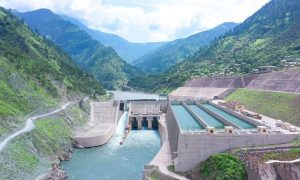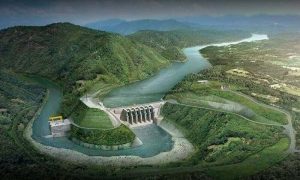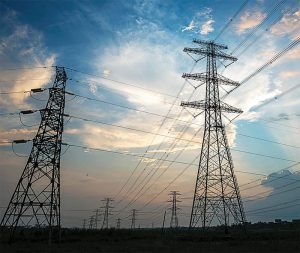
ENGINEERING POST Report
The world is moving fast towards 5G,Industrial Internet of Things (IIoT) and Artificial Intelligence (AI), the key technologies for Fourth Industrial Revolution (4IR). With the advent of 4IR, new opportunities of prosperity are being created. The new wealth creation paradigm is based on data-intensive decision systems. Therefore, we have to harness, these ICT innovations for national wealth creation.
Pakistan stands at a juncture of time where we can become part of and surf the rising wave of new technological era to be counted in the global arena. Now it is high time to expand on our accomplishments and put concerted efforts into other areas as well, especially extensive utilization of ICTs in industry, agriculture and other sectors of the national economy.
A multi-dimensional and holistic approach would quite obviously enable us to become more competitive. The work has already been started in some areas, which need to be further built upon in future.
A look at performance during 2018-19
In the Information Technology Sector, National Incubation Centres ( NICs) have been established at Islamabad, Karachi, Lahore, Peshawar and Quetta, federal and provincial capitals. Currently more than 200 start-ups are housed in these facilities, many of these start-ups have the potential to create marketable products and services have been approved for appropriate funding in this regard.
As of latest information available from Pakistan Telecommunication Authority (PTA), as of February 2019, in Telecommunication Sector, cellular tele-industry had increased from 72 per cent to 75 per cent. The 3G/4G broadband services had also accordingly further increased subscribers from 49 million to appreciable figures of 65 million.
It is worth mentioning that Pakistan’s growing ECT sector is lowest ranked amongst South Asian countries. It is ranked at 127 in ICT adoption out of 140 economies, while India is at 117, Bangladesh at 102, Nepal at 101, and Sri Lanka at 109 all are ahead. Republic of Korea is ranked at one in this respect.
Similarly in overall skills, Pakistan is also ranked very low at 125, however , in Digical Skills amogst the population we are a little better ranked at 75 and in graduate skill sets at 51, while India is far ahead at 48 and 36 respectively. Also Malaysia, Singapore are ranked at 24 and 20 respectively in Overall Skills, 11 and 6 in Digical Skills and 8 and 5 in Graduation Skills Sets respectively.
In innovation capabilities,Pakistan is ranked at 76, while India is ranked at 31, China, Singapore, Korea and Malaysia are ranked at 24, 14, 8 and 30 respectively. The leader in Innovation Capability is Germany.
Quite obviously, it is pretty evident that Pakistan is much behind on most of the dimensions even in the regional context. The other countries are moving very fast , as compared to Pakistan unfortunately, thus creating a bigger gap and posing a serious challenge to us for catching with them at the earliest.
Some of the major projects executed in the ICT sector during 2019-19 were;
Through Ministry of Information Technology’s project “Enhancing IT Exports through Industry Support Programmes”, 20 more companies were provided CMMI consultancy to attain certification of CMMI level-2, CMMI Level-3 , CMMI level-5 and ISO 27,001/20,000 International Standards.
Under the “Prime Minister’s ICT Internship Programme”, placement of 2000 ICT graduates in public and private sector organizations.
Pakistan Space Centre (PSC) was approved which aims to establish an indigenous facility for development of satellites in accordance with the international space standards. The space centre will lave the capability to carry out manufacturing, testing, system level assembly, integration, launching and operations of various types of satellites.
Pakistan Muslti-Mission Satellite (Pak-Sat-MMI) is also planned during the current financial year which will cater to the demand of Direct-To-Home (DTH) , High-Throughput Services (HTS)/Broadband Internet and Strategic SatComm.PC-11 has already been approved and during the current fiscal, PC-1 will be submitted for approval and subsequent execution of the project.
Feasibility study of Pakistan’s Second Optical Remote Sensing Satellite (PRSS-02) is also in the final stages of planning process. PRSS-02 aims to launch a sub-meter resolution remote sensing satellite.
Cross-Border OFC System between China and Pakistan under CPEC for international connectivity of voice and data traffic is also under implementation and it will enable alternative route for international internet connectivity.
Technical Training Institute is being established in Gilgit-Baltistan.
Internet and broadband services are being expanded in Gilgit-Baltistan and Azad Jammu and Kashmir.
Technology Parks Development Project was also launched during the period under report. For this assistance of Korea has been sought and loan agreement was also signed too. Feasibility of the project was completed during the year and boundary wall and other allied work such as design, consultancy etc is in progress.








